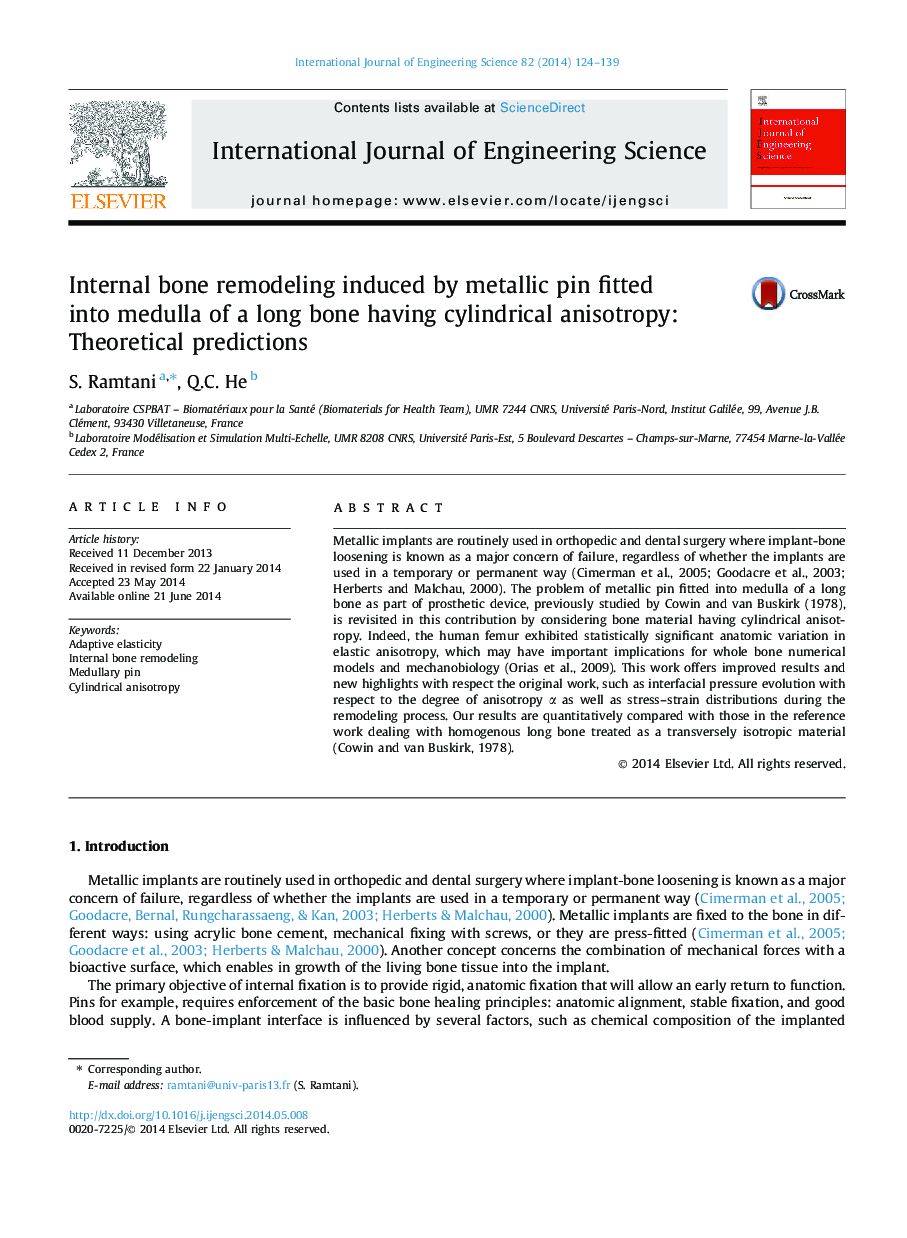| Article ID | Journal | Published Year | Pages | File Type |
|---|---|---|---|---|
| 824837 | International Journal of Engineering Science | 2014 | 16 Pages |
Metallic implants are routinely used in orthopedic and dental surgery where implant-bone loosening is known as a major concern of failure, regardless of whether the implants are used in a temporary or permanent way (Cimerman et al., 2005; Goodacre et al., 2003; Herberts and Malchau, 2000). The problem of metallic pin fitted into medulla of a long bone as part of prosthetic device, previously studied by Cowin and van Buskirk (1978), is revisited in this contribution by considering bone material having cylindrical anisotropy. Indeed, the human femur exhibited statistically significant anatomic variation in elastic anisotropy, which may have important implications for whole bone numerical models and mechanobiology (Orias et al., 2009). This work offers improved results and new highlights with respect the original work, such as interfacial pressure evolution with respect to the degree of anisotropy αα as well as stress–strain distributions during the remodeling process. Our results are quantitatively compared with those in the reference work dealing with homogenous long bone treated as a transversely isotropic material (Cowin and van Buskirk, 1978).
